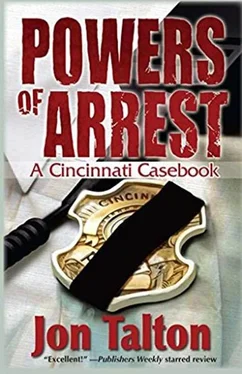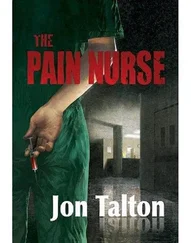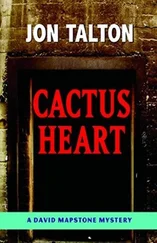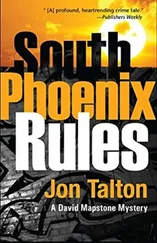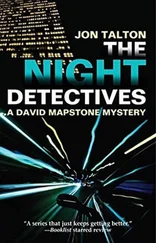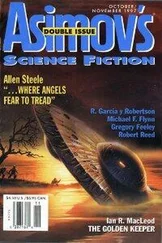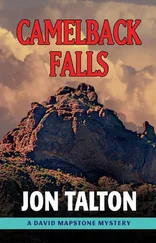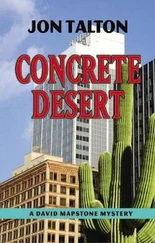“I like the statue of him down at Sawyer’s Point better,” Dodds said. “Looks like a real bad-ass. He saved Rome, refused to be dictator for life, and went back to his plow. If it hadn’t been for Cincinnatus, we’d be called Losantiville.”
“Well, technically, we were named after the Society of the Cincinnati, the Revolutionary War veterans,” Will said.
“Okay, know it all,” Dodds said. “What was that building called?”
Will shrugged.
“The Brotherhood Building,” Dodds said. “Which is appropriate as the gateway to Over-the-Rhine, where all the brothers are hoods.”
Cheryl Beth felt her face smile. That was a start, at least, to feeling human again.
Will turned north onto Vine and began an impromptu tour of Over-the-Rhine. A turn of the wheel, and they entered a different world. He pointed out this building in the Italianate style, that one in federal, a hidden garden behind another, and the commercial buildings with their cast-iron fronts. Renaissance revival, Romanesque, Queen Anne. Some had been restored, most had not. She thought the neighborhood was stunning, despite its problems. It held an intimacy and living history that appealed to her. Its streets were meant to be walked to be really appreciated, but the slow drive with Will’s narration was the next best thing. He wore his knowledge lightly and it was coated in the sweetness of his joy of the place.
A man who liked something other than sports and cars: that was a find.
She also realized he was doing this to calm down, and it was helping to calm her, too.
He jigged over to Walnut and lingered in front of the Germania Building with its statue, a woman in a robe, holding a shield. She stood on a setback in the second story of the ornate building.
“This was the German Mutual Insurance Company,” he said. “In World War I, the anti-German feeling was so hysterical, the company became Hamilton Mutual and they draped the statue. They renamed a bunch of the streets, too. English Street used to be German Street. Bremen Street became Republic…”
“You see what it’s like to ride with Mister President,” Dodds said.
“Cheryl Beth, do you know what J.C.’s nickname was when he played football at UC?”
“Now don’t start that!” Dodds grumbled.
“It was ‘Sweet Dreams’ Dodds.”
“Sweet Dreams.” Cheryl Beth suppressed a laugh. “I assume that’s because you hit the other guys so hard it sent them to nap time, along with a potential concussion.”
“Damn straight.” Dodds adjusted his posture. “See, she gets it.”
“Then why are you aggravated when I bring it up?”
Dodds faked a punch at the back of Will’s head. “Man, Borders knows every building, every cobblestone here. He’s a frustrated architect.”
“Maybe an architectural historian,” Will said. “I hate most modern architecture. Except for the Contemporary Arts Center and the P &G headquarters.”
“Which looks like Dolly Parton’s…” Dodds stopped himself.
“Oh, please,” Cheryl Beth said. “Everybody calls them the Dolly Parton Towers. Nurses can match cops any day in inappropriate language. We’re as weird as you guys.”
Dodds chuckled.
“If we’re going to have to do this,” he said, “Why don’t you drive over to the Samuel Adams Brewery. While you regale Cheryl Beth with Over-the-Rhine’s beer history, I’ll break in and get us a six pack.”
“This is the heart and soul of the city,” Will said.
“It’s the heart and soul of scumbaggery,” Dodds said.
“Jeez, Dodds, some guy killed five people in a little town in southeast Indiana last month. Crime happens anywhere. The city has to warehouse so many of the poor and uneducated because they’re zoned out of suburbia…”
“Complex socio-economic-cultural drivers behind this.” Dodds face dropped into mock seriousness. Then his teeth gave an 880-key smile. “My travel tour would be to point out every building where we had a dead body. I could put up about a hundred red targets as a tourist attraction. See that intersection? Three homicides in one week a couple of years ago. That building: stinker on the fourth floor, middle of July…”
Cheryl Beth laughed, glad for the release. “If you do that, I’ll tell you really nasty E.R. stories…”
Will drove on slowly. The streets were deserted, a steady rain now coming down. Not even a wino was sleeping inside a doorway.
“He told me he had ‘Kristen’s’ gun,” Will said. “Not the woman I murdered, or the lady cop, or even Kristen Gruber. But ‘Kristen.’ He said it familiarly. He called me ‘Detective Borders,’ like the letter-writer and the voice on the phone. Then he called you ‘Cherry Beth.’ Has anyone called you that?”
“Not since I was teased in fifth grade. It sounds like a soft drink.”
He went on, “You know what else he said to me? He has the gun to the back of my head, he’s making threats, demanding that I give up my weapon, and he says, ‘How does that make you feel, detective?’ Those are the exact words Kenneth Buchanan used the first time I met him and he wanted me to know he’d already leaned on the chief.”
Dodds took it in and said nothing. Cheryl Beth was interested in the dynamic between the two of them, imagined how effective they had been as partners, but she also checked again to see that her door was locked.
“What else did he say about me?” she asked.
Will hesitated. “It wasn’t good. I would never let anything bad happen to you.”
“I know that.” At that moment, she felt strangely unafraid for herself. She was more concerned for Will. “Did he mention your father?”
“No. No, he didn’t.”
“So he doesn’t know you that well,” she said. “Otherwise, he would have used that to get at you.”
“Good point,” Dodds said. “That might mean he’s not law enforcement. I still don’t know why he chose Borders. So how do we get probable cause that will let us really go after Buchanan?”
They passed a marked unit. Two officers were standing on the sidewalk, talking to three young black men. All were soaking wet.
“I’m not sure,” Will said.
“So let’s find something. Screw Fassbinder.”
“I mean, I’m not sure a man Buchanan’s age could have absorbed that punishment from Junior and still outrun him and gotten away. Also, nothing from ViCAP about homicides in the Atlanta area that match the M.O. here.”
Cheryl Beth asked about ViCAP, and Will told her of the FBI database. Buchanan came to Cincinnati from Atlanta when his wife took the job with the symphony.
“Our guy has killed before,” Will said. “He knows the right moves. He’s disciplined. But Buchanan was in Atlanta for thirteen years and nothing. He only decides to start killing now because he’s in Cincinnati? I don’t know…”
“So you’re doubting yourself now?” Dodds sounded annoyed.
Will shook his head. “I’m missing something…”
“Don’t go soft on me, Borders. It’s becoming a bad habit. You don’t believe I caught the cello player’s killer, either.”
“No,” Will said. “I don’t. Your golden gut is lying to you.”
“Oh, fuck you.”
“Calm down, boys,” Cheryl Beth said. A dark shape caught her eye: some kind of bundle or bag. “What’s that?”
They were at Fourteenth and Sycamore, back near the diner. Will swung the spotlight toward some bushes at the edge of the Cutter Playground. He pulled across the street and put the car in park. Dodds got out, snapping on gloves.
The intersection was completely empty. A pair of headlights lingered several blocks south, and then turned.
He came back toting a black gym bag and something else.
It was a wig.
Читать дальше
